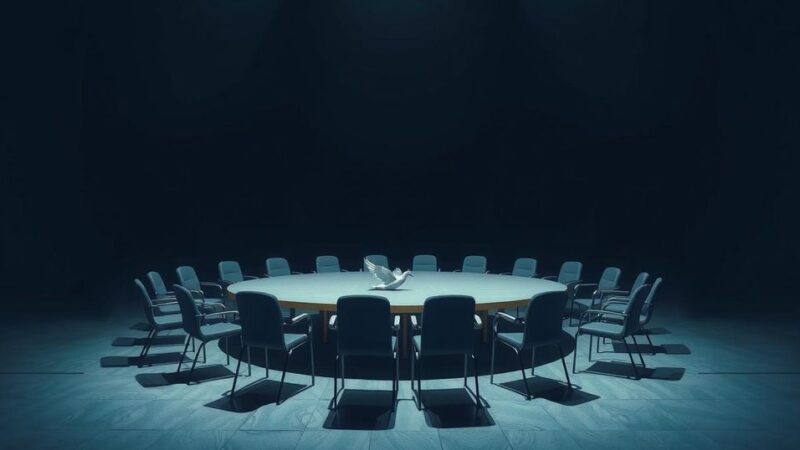Rwandan President Paul Kagame will meet Congolese President Felix Tshisekedi in Tanzania to discuss the escalating conflict posed by the M23 armed group in eastern DRC. The situation has resulted in thousands of deaths and displacements as the M23 seizes territory, including Goma. The summit seeks to forge a united response among regional leaders to restore peace and stability amidst ongoing humanitarian crises.
Rwanda’s President Paul Kagame is scheduled to meet Congolese President Felix Tshisekedi in Tanzania to address the escalating conflict in the eastern Democratic Republic of Congo (DRC). The M23 armed group has aggressively captured significant territories, including the strategic city of Goma, exacerbating a situation that has caused significant humanitarian crises, with thousands reported dead and displaced.
The summit in Dar es Salaam will bring together leaders from the East African Community and the Southern African Development Community to seek a resolution to the conflict. Despite past peace negotiations in 2021 by Angola and Kenya failing, regional leaders aim to unify their efforts to restore stability in the region affected by decades of unrest.
Rwanda has been accused of supporting the M23, although it denies these claims. A United Nations report referenced the presence of approximately 4,000 Rwandan troops in the DRC, asserting their involvement in illegal mineral smuggling, specifically gold and coltan. Conversely, Rwanda claims that the DRC shelters the FDLR, a group responsible for atrocities during the Rwandan genocide.
The M23’s advancement towards Kavumu poses a significant threat to Congolese troops and the surrounding area. Many residents in Bukavu are preparing for potential violence, with shops barricading and educational institutions suspending classes. Local frustrations are amplified by the overwhelming influx of people attempting to cross the border into Rwanda amid the chaos.
UN rights chief Volker Turk reported nearly 3,000 deaths and over 2,800 injuries since the M23’s resurgence, highlighting disturbing trends of sexual violence. The M23’s control over Goma has allowed them to establish local authority, indicating their ambitions of reaching the national capital Kinshasa, situated over 1,600 kilometers away.
The DRC army’s repeated retreats have raised concerns regarding the potential for a broader regional conflict, as several nations, including South Africa and Malawi, bolster DRC’s military efforts. The summit’s preliminary discussions among regional foreign ministers have taken place, with calls for a consolidated peace approach that combines past initiatives from Angola and Kenya.
The conflict in the eastern DRC stems from decades of instability and violence triggered by ethnic tensions, resource exploitation, and the aftereffects of the Rwandan genocide. The resurgence of the M23, a rebel group with a checkered history, has reignited fears of large-scale conflict, leading to humanitarian crises and escalations that threaten both local and regional stability. Efforts by international and regional bodies to mediate peace have had mixed results, complicating the already volatile situation. Regional leaders are now faced with the challenge of uniting various diplomatic initiatives and addressing the roots of the conflict while responding to the immediate humanitarian needs of affected populations.
The upcoming summit in Tanzania represents a critical opportunity for regional leaders to collectively address the severe conflict impacting the eastern DRC. The situation remains dire, with significant loss of life and widespread displacement due to the M23’s military actions. Coordinated efforts among regional partners will be essential to restore stability and prevent further escalation of violence, demonstrating the need for a unified and strategic approach to peace efforts in the region.
Original Source: www.voanews.com






